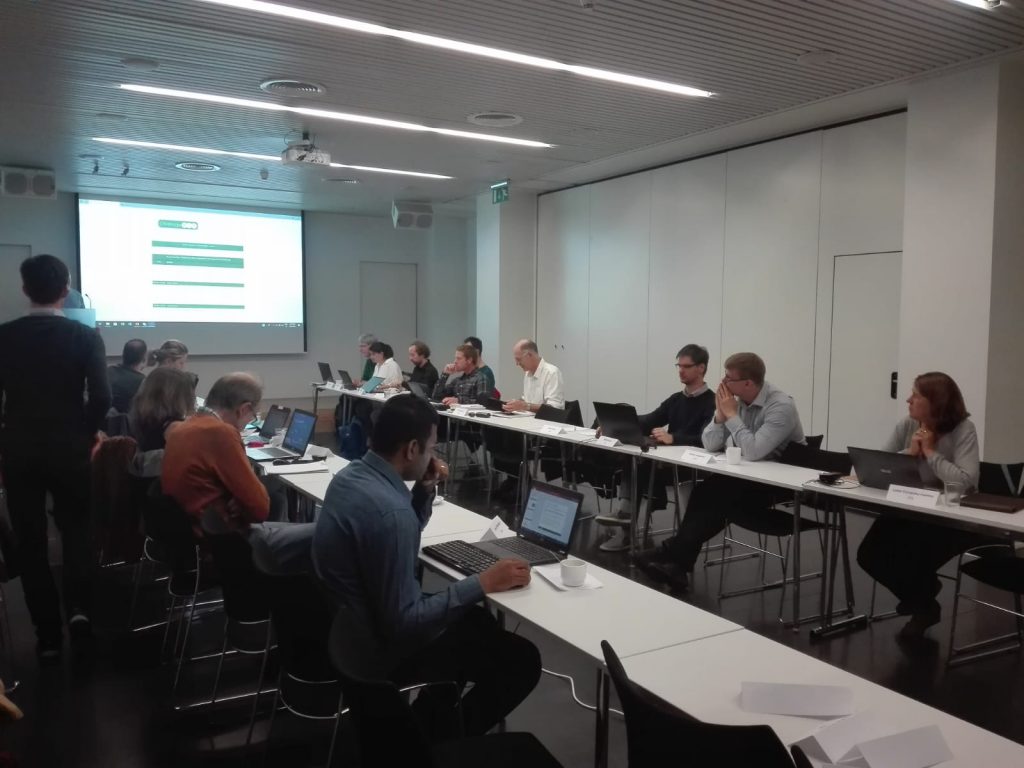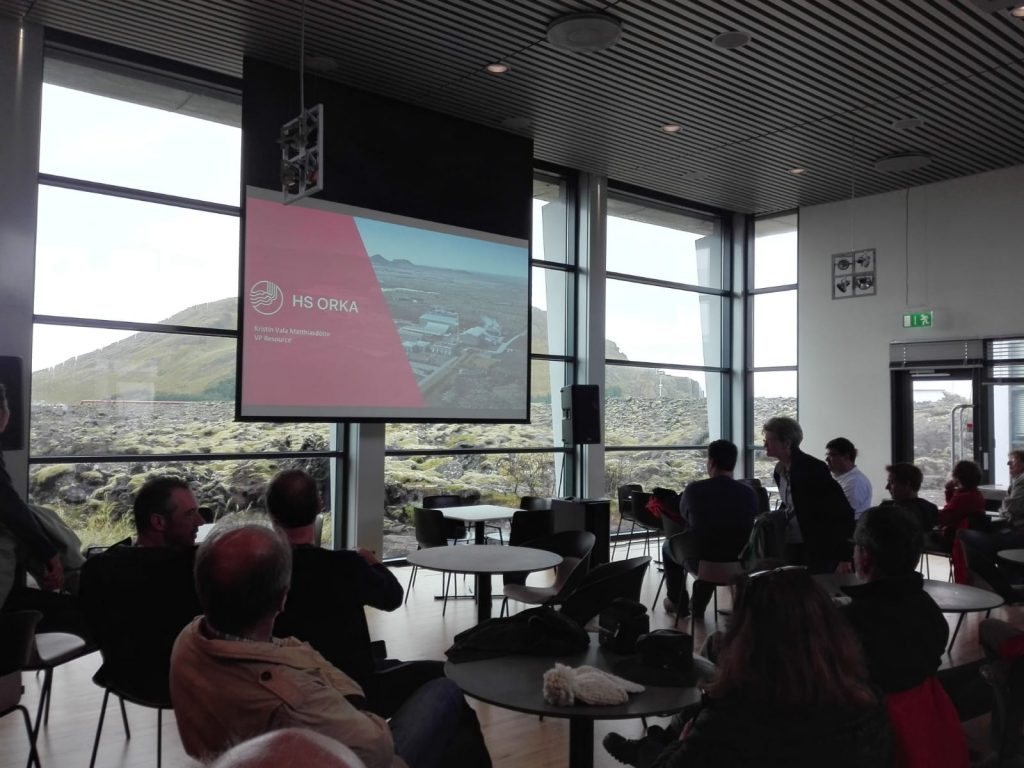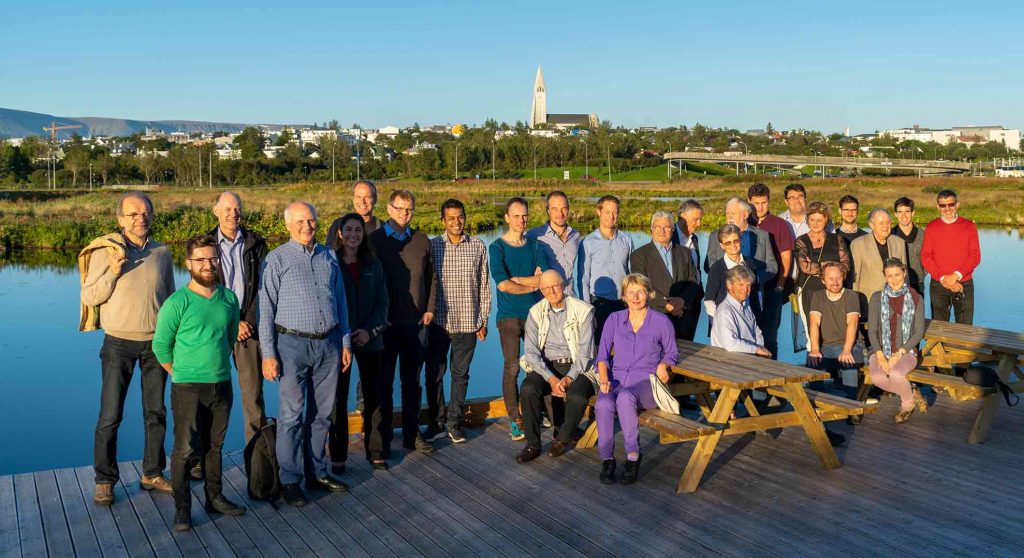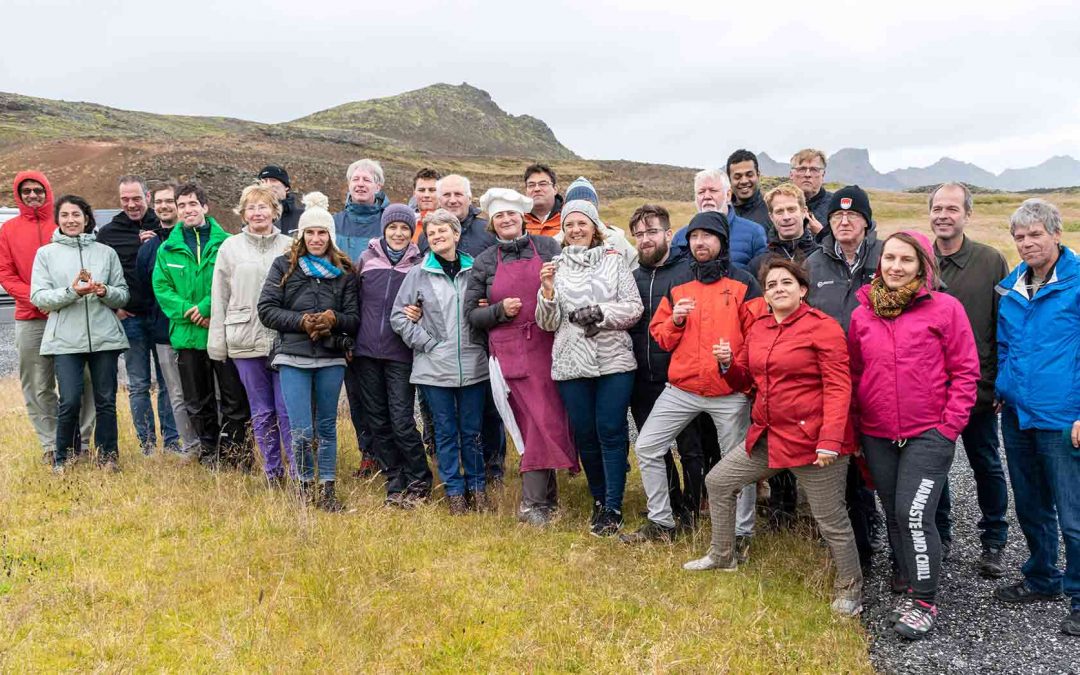Iceland is a pioneer in the use of geothermal energy. Thus, the perfect location for CHPM2030 consortium partners to meet and discuss about the project outcomes and organise the work for the coming months. Kindly hosted by ISOR, the Iceland GeoSurvey, the consortium meeting took place between 4th and 7th September 2018 in Reykjavík.

Photo credit: EFG
On 4th September, the meeting started with a welcoming address by Árni Ragnarsson from ISOR. Following this, partners discussed the administrative aspects of the Horizon2020 project. Later, the work completed by partners in relation to application of nano-carbon particles during the metal leaching, the metal recovery and the electrochemical power generation was presented.
The next session was focused on the systems integration. Partners working on this matter asked for their colleagues’ input regarding the optimisation process of the different components of the CHPM plant. There was also a discussion on the proposed set of input and output parameters that are built in the component model as these parameters need to be provided by partners.
The last session of the day was focused on the integrated sustainability assessment and the dissemination and stakeholder involvement.
On 5th September, partners exchanged views on the roadmapping and the preparation for pilots. The results of the 2 rounds of the Delphi survey were presented. The participation in the survey was high and the results are being analysed. The characteristics and latest assessment on the selected areas for the CHPM pilot plants were presented. The selected locations for the pilot plants are regions located in Portugal, UK, Romania and Sweden.
Partners also discussed the aspects for harmonising the different technological components, and input-output parameters for modelling. They also agreed on the selection of one specific site, and therefore one brine composition for the modelling purpose.
The last discussion of the day was focused on the ongoing tasks and action plans for the future.
On 6th September, the Advisory Board Workshop was held. The work package leaders provided a summary of the work completed in the given work package. They also formulated questions dedicated to the Advisory Board members. Afterwards, a presentation about the conceptual framework and the harmonisation of the output and input parameters was provided.

Photo credit: EFG
On the last day of the meeting, CHPM2030 partners visited the Reykjanes peninsula. This UNESCO global geopark is a part of the North Atlantic Ridge in which 2 tectonic plates are separating at an average rate of 2.5 cm/yr. This field trip included a visit to HS Orka headquarters, a leading company in the production of renewable energy. Partners visited one of the geothermal plants of this company and could discuss with local employees about the details of the functioning of the plant. They also had the opportunity to visit Blue Lagoon algae farm, a company based in Reykjanes that is producing cosmetics with the CO2 and energy wastes of the geothermal plants located in the peninsula.

Photo credit: LPRC

